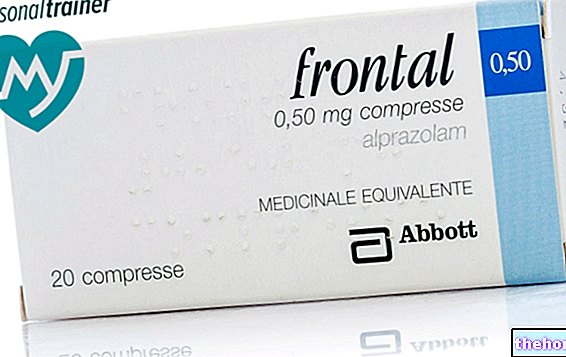Active ingredients: Meningococcal group C conjugated vaccine
MENJUGATE 10 micrograms powder and solvent for suspension for injection
Indications Why is Menjugate used? What is it for?
Menjugate is a vaccine used to prevent disease caused by the bacterium Neisseria meningitidis group C (also called group C meningococcus). The vaccine works by stimulating the patient's body to produce its own protection (antibodies) against these group C menigococcal bacteria.
Group C Neisseria meningitidis can cause serious infections that can sometimes be life-threatening, such as meningitis and septicemia (blood infection).
This vaccine is used for the active immunization of children from 2 months of age, adolescents and adults and induces protection only against group C meningococcal bacteria. It does not protect against other groups (strains) of meningococcal bacteria or against other agents that may cause meningitis or septicemia (blood infection) If at any time you or your child experience pain or stiffness in the neck or discomfort caused by light (photophobia), sleepiness or confusion, red or purplish bruising-like spots on the skin do not disappear when you press them, you should contact your doctor or the nearest emergency room immediately.
This vaccine cannot cause type C meningitis (group C meningococcal disease).
This vaccine contains a protein (called CRM197) from the bacterium that causes diphtheria.
Menjugate does not protect against diphtheria. This means that you (or your child) to be protected against diphtheria you must receive a different vaccine when this is specified in the vaccination schedule or when recommended by your doctor.
Contraindications When Menjugate should not be used
Do not use Menjugate if you or your child
- you are allergic to the active substance or to any of the other ingredients of Menjugate (see section 6)
- are allergic to diphtheria toxoid (a substance also present in other vaccines)
- previously showed any allergy symptoms after vaccination with Menjugate
- has a high fever. In this case it may be necessary to postpone vaccination with Menjugate
Precautions for use What you need to know before taking Menjugate
Take special care with Menjugate if you or your child
- have haemophilia or any other condition that prevents the blood from clotting properly (for example too low a concentration of platelets called thrombocytopenia) or are taking medicines that can affect blood clotting
- have a weak immune system for any reason (for example if you or your child do not produce antibodies effectively or if you or your child are taking drugs that reduce the immune response to infections, such as drugs anticancer drugs or high doses of corticosteroids)
- you have had your spleen removed or you have been told that your spleen is not working as it should
- have an infectious disease or fever (for example sore throat, cough, cold or flu)
- has an "over 65 years of age
- suffer from a kidney disease in which a large amount of protein is excreted in the urine (called nephrotic syndrome). There have been reports of reactivation of this syndrome following vaccination.
Before receiving a dose of Menjugate, you (or your child) should be asked for detailed information on your personal and family health and health history. Your or your child's immunization status and any side effects that occur after vaccination should be reported to your doctor or nurse. as it may not be suitable for you (or your child). In some circumstances the vaccine may be given to you (or your child) but may not provide high protection against infections caused by group C meningococcal bacteria.
Interactions Which drugs or foods can change the effect of Menjugate
Tell your doctor or nurse if you (or your child) are using, have recently used or might use any other medicines.
Menjugate can be given at the same time as other vaccinations but in that case the other injectable vaccines should be given using different injection sites, preferably in an arm or leg other than the Menjugate injection site.
Vaccines that can be administered concurrently include:
- Polio (oral or injectable poliomyelitis vaccine)
- Diphtheria and Tetanus vaccines alone or combined with whooping cough vaccines
- Hemophilus influenzae type b (Hib) vaccines
- vaccines for hepatitis B administered alone or in combination with vaccines against Diphtheria, Tetanus, Haemophilus influenzae type b, inactivated vaccine against Poliomyelitis and Pertussis
- combined measles, mumps and rubella (MMR) vaccine
- Pneumococcal conjugate vaccine These other vaccines should be administered according to the current vaccination schedule.
Warnings It is important to know that:
Pregnancy and breastfeeding
If you are pregnant, think you may be pregnant or are planning to have a baby, or if you are breast-feeding, ask your doctor or nurse for advice before you are given Menjugate. Your doctor or nurse may, however, advise you to be given Menjugate if you are at high risk of getting group C meningococcal infection.
Driving and using machines
You may experience dizziness / vertigo or some other side effect after receiving the vaccine. This may interfere with your ability to drive or use machines. Do not drive or operate machinery until you know what effects the administration of Menjugate has on you.
Menjugate contains less than 1 mmol sodium (23 mg) per dose, so it is practically sodium-free.
Dosage and method of use How to use Menjugate: Dosage
Menjugate will be administered by your doctor or nurse.
The vaccine is usually given into the thigh muscle in children up to 12 months of age and into the deltoid muscle in older children, adolescents and adults.
Your doctor or nurse will take care not to give the vaccine into a blood vessel and will make sure to inject it into the muscle and not into the skin tissue.
For children 12 months of age and older, adolescents and adults: A single dose (0.5 ml) of the vaccine is recommended.
For children from 2 months up to 12 months: two doses of Menjugate which must be administered with an interval of at least two months.
In order to maintain protection, children undergoing the primary vaccination schedule (two doses) should subsequently receive a booster dose. Your doctor will advise you when this dose should be given to your child.
For information on vaccine reconstitution see the section for physicians and healthcare professionals at the end of this package leaflet.
If you have any further questions on the use of Menjugate, ask your doctor or nurse.
Overdose What to do if you have taken too much Menjugate
As Menjugate will be administered by a doctor or nurse and each injection consists of a single dose of 0.5 ml, it is very unlikely that you or your child will receive an overdose of the vaccine.
If you have any questions about the amount of vaccine given to you or your child, talk to your doctor or nurse.
Side Effects What are the side effects of Menjugate
Like all medicines, Menjugate can cause side effects, although not everybody gets them.
If you experience a severe allergic reaction (the average frequency of such reactions is less than 1 in every 10,000 patients) please report it immediately to your doctor or go immediately / take your child to the nearest emergency room as this may be necessary. urgent medical help.
Symptoms of a severe allergic reaction can include:
- swelling of the lips, oral mucosa, throat (which may cause difficulty in swallowing)
- difficulty breathing with wheezing and coughing
- skin rashes and swelling of the hands, feet and ankles
- loss of consciousness
- drop in blood pressure These very rare reactions may occur immediately or shortly after vaccination and usually resolve rapidly after administration of appropriate treatment.
Other allergic-type reactions may begin a few days after the vaccine is given.
These include:
- skin rashes, sometimes with itchy, purple spots or patches
- rash with blisters which may also cause ulceration of the oral mucosa and around the genital organs The most common side effects reported during clinical trials generally lasted for one or two days and were generally not serious.
The side effects were:
Very common (may affect more than 1 in 10 people)
- In all age groups: redness, swelling and tension / pain at the injection site. This type of reaction generally did not require medical attention. Redness or swelling of at least 3 cm and pain to impair movement have rarely been seen for more than 48 hours
- Infants: vomiting
- Infants and young children: irritability, drowsiness, sleep disturbances, loss of appetite and diarrhea
- Children from 10 to 13 years: headache
- Older children and adults: general malaise
- Adults: muscle and joint pain, nausea
Common (may affect up to 1 in 10 people)
- In all age groups: fever (but rarely severe)
- Infants and young children: crying
- Young children: vomiting
- Children from 6 to 10 years: headache
Other side effects reported during regular vaccination schedules include:
Very rare (may affect up to 1 in 10,000 people)
Different age groups:
- Enlarged lymph nodes
- Vertigo / dizziness
- Fainting
- Numbness
- Tingling or pricking sensation
- Temporary reduction in muscle tone
- Visual disturbances and sensitivity to light. These types of events have generally occurred together with headache and dizziness / dizziness.
Although seizures have been reported very rarely after vaccination with Menjugate, it is possible that some of these cases in adolescents and adults were actually fainting. In infants and younger children, seizures were generally associated with high fever. Most of the patients recovered quickly.
Rare cases of relapse of a condition called nephrotic syndrome have been reported following administration of this vaccine.
In babies born very premature (at the 28th week of gestation or earlier), longer than normal breath intervals may occur for two to three days after vaccination.
Reporting of side effects
If you get any side effects, talk to your doctor or nurse. This includes any possible side effects not listed in this leaflet. You can also report side effects directly via the Italian Medicines Agency at: http: //www.agenziafarmaco. .gov.it / en / responsible By reporting side effects you can help provide more information on the safety of this medicine.
Expiry and Retention
Keep this vaccine out of the sight and reach of children.
Do not use Menjugate after the expiry date which is stated on the carton. The vaccine consists of two vials each of which may be marked with a different expiration date. The box and ALL its contents must be discarded when the expiration date indicated on the box is reached. Store in a refrigerator (2 ° C - 8 ° C). Do not freeze. Keep the vials in the original carton in order to protect them from light.
Do not throw away any medicines via wastewater or household waste. Ask your doctor or nurse how to throw away medicines you no longer use. This will help protect the environment.
Deadline "> Other information
What Menjugate contains
One dose (0.5 ml of reconstituted vaccine) contains the following amount of active substance:
10 micrograms of group C Neisseria meningitidis oligosaccharide (C11 strain) chemically conjugated to 12.5 - 25 micrograms of Corynebacterium diphteriae CRM197 protein.
The active substance is adsorbed on aluminum hydroxide (0.3 - 0.4 mg Al 3+) in 0.5 ml (1 dose) of reconstituted vaccine.
The other ingredients of the powder contained in the vial are: mannitol, sodium dihydrogen phosphate monohydrate and disodium phosphate heptahydrate.
The other ingredients of the aluminum hydroxide solvent contained in the vial are: sodium chloride and water for injections (see also end of section 2).
Description of what Menjugate looks like and contents of the pack
Menjugate consists of powder and solvent for suspension for injection.
Each dose of Menjugate is available with two vials:
- A vial containing the active substance in the form of a white or off-white powder
- One vial containing the aluminum hydroxide solvent in the form of an opalescent white suspension The contents of the two vials must be mixed before administration of the vaccine.
Pack sizes: 1, 5 and 10 doses. Not all pack sizes may be marketed.
Deadline "> Information for healthcare personnel
The following information is intended for healthcare professionals only:
Reconstitution of the vaccine
The lyophilized vaccine must be prepared by reconstitution with the aluminum hydroxide diluent.
Gently shake the vial containing the aluminum hydroxide solvent.
Withdraw 0.6 ml of suspension and use it to reconstitute the CRM197 conjugated meningococcal vaccine C contained in the other vial. Gently shake the reconstituted liquid vial until the vaccine is completely dissolved (this will ensure binding of the antigen to the adjuvant. Using a new needle of suitable caliber, withdraw 0.5 ml of reconstituted product, making sure that no air bubbles are formed.
After reconstitution, the vaccine is presented as a slightly opalescent, colorless or slightly yellowish suspension, free from visible foreign particles. In the event that any foreign particles are observed or the appearance of the reconstituted vaccine is different from that described, discard the vaccine.
Source Package Leaflet: AIFA (Italian Medicines Agency). Content published in January 2016. The information present may not be up-to-date.
To have access to the most up-to-date version, it is advisable to access the AIFA (Italian Medicines Agency) website. Disclaimer and useful information.
01.0 NAME OF THE MEDICINAL PRODUCT -
MENJUGATE
02.0 QUALITATIVE AND QUANTITATIVE COMPOSITION -
One dose (0.5 ml of reconstituted vaccine) contains:
Oligosaccharide of Neisseria meningitidisgroup C (strain 11): 10 mcg
Conjugated with
Protein Corynebacterium diphtheriae CRM197 : from 12.5 to 25.0 mcg
adsorbed on aluminum hydroxide from 0.3 to 0.4 mg Al3 +
For the full list of excipients, see section 6.1.
03.0 PHARMACEUTICAL FORM -
Powder and solvent for suspension for injection.
Powder (vial): white to off-white
Suspension (syringe): opalescent white
04.0 CLINICAL INFORMATION -
04.1 Therapeutic indications -
Active immunization of children from 2 months of age, adolescents and adults, for the prevention of invasive infection caused by Neisseria meningitidis group C.
The use of Menjugate must be established on the basis of official recommendations.
04.2 Posology and method of administration -
Dosage
Pediatric population
The safety and efficacy of Menjugate in children less than 2 months of age have not been established.
Primary immunization
Children from 2 months to 12 months: two doses, of 0.5 ml each, which should be administered with an interval of at least two months (see section 4.5. Interactions with other medicinal products and other forms of interaction).
Children over 12 months: a single dose of 0.5 ml.
Booster dose
It is recommended that a booster dose be given to children after completion of the primary vaccination schedule. The timing of administration of this dose should be in accordance with available official recommendations.
Information on booster dose response and co-administration with other pediatric vaccines is provided in sections 5.1 and 4.5, respectively.
The need for a booster dose in subjects already immunized with a single dose (i.e. subjects older than 12 months previously immunized) has not yet been established (see section 5.1).
Teenagers and adults
Menjugate should be administered as a single 0.5 ml injection.
Senior citizens
There are no data available for adults aged 65 years and over (see section 5.1).
There are no data available on the use of different meningococcal group C conjugate vaccines for the primary vaccination or for the booster dose. If possible, the same vaccine should always be used.
Method of administration
Precautions to be taken before handling or administering the medicinal product.
Intramuscular injection. The vaccine (0.5 ml) has been formulated for deep intramuscular administration, preferably in the anterolateral region of the thigh in children under 12 months and in the deltoid region in children over 12 months, adolescents and adults.
The vaccine should not be injected intravenously, subcutaneously or intradermally.
Menjugate must not be mixed in the same syringe with other vaccines. In case of administration of multiple vaccines, injections should be performed at different sites (see section 4.5).
For instructions on reconstitution of the medicinal product before administration, see section 6.6.
04.3 Contraindications -
Hypersensitivity to the active substance (s) or to any of the excipients listed in section 6.1, including diphtheria toxoid.
Subjects who showed signs of hypersensitivity following a previous administration of Menjugate.
As with other vaccines, administration of Menjugate should be postponed in subjects with acute febrile symptoms.
04.4 Special warnings and appropriate precautions for use -
Before injecting any vaccine, the person administering it must take all appropriate precautions to prevent allergic or other reactions. As with all injectable vaccines, appropriate medical treatment and supervision should always be readily available in case of a rare anaphylactic reaction following the administration of the vaccine.
Before the administration of any dose of Menjugate, the parent or guardian should be asked about the individual's personal history, family history, and recent health conditions, including previous vaccinations, current health conditions and any reactions. adverse event that occurred following previous immunizations.
The advantages of vaccination with the meningococcal group C conjugate vaccine need to be reviewed on the basis of the incidence of infections caused by N. meningitidis group C in a given population prior to the implementation of an extensive immunization campaign.
Menjugate does not protect against meningococcal infections caused by other meningococcal bacteria other than group C (A, B, 29-E, H, I, K, L, W-135, X, Y, or Z, including non-typed ones). Complete protection against infections caused by meningococcal group C cannot be guaranteed.
No data are yet available on the use of the vaccine to control the onset of the disease after exposure.
In subjects with insufficient antibody production, vaccination may not give an adequate protective antibody response. Although HIV infection is not a contraindication, Menjugate has not been specifically evaluated in immune-compromised individuals. Individuals with complement deficiency or with functional or anatomic asplenia may have an immunological response to the meningococcal group C conjugate vaccine; however the degree of protection that could be obtained is not known.
Although symptoms of meningism, such as neck pain / stiffness or photophobia, have been reported, there is no evidence that the vaccine can cause meningococcal meningitis C. Medical surveillance should therefore be maintained for the possibility of co-incidental meningitis..
Conjugate vaccines containing the Cross Reacting Material Protein (CRM197) should not be considered as immunizing agents against diphtheria. Therefore, no changes should be made to the schedule of administration of vaccines containing diphtheria anatoxin.
In case of acute infections or febrile symptoms, postpone administration of Menjugate, unless in the judgment of the physician such postponement could result in greater risks. Secondary conditions without fever, such as mild upper respiratory infections, are generally not a sufficient reason to postpone immunization.
When the primary immunization series is performed in very premature infants (born at 28 weeks of gestation or earlier), the potential risk of apnea and the need to monitor respiration for 48-72 hours after vaccination should be considered. particularly for children with a previous history of respiratory failure.
As the benefit of vaccination in this group of children is high, vaccination should not be suspended or postponed.
The vaccine should not be injected intravenously, subcutaneously or intradermally.
Menjugate has not been evaluated in subjects with thrombocytopenia or with bleeding disorders. In subjects at risk of bleeding following intramuscular injections, the risk-benefit ratio must be evaluated.
Parents should be informed about the immunization schedule for this vaccine. Advise parents or guardians to take necessary precautions, such as the use of antipyretics, and emphasize the importance of reporting any adverse reactions.
The syringe cone cover may contain 10% dry natural rubber. Although the risk of developing allergic reactions to latex is very low, healthcare professionals are encouraged to consider the benefit-risk before administering the vaccine to patients with a known history of latex hypersensitivity.
There are no data for adults aged 65 and over.
04.5 Interactions with other medicinal products and other forms of interaction -
Menjugate must not be mixed in the same syringe with other vaccines.
If two or more vaccines are to be administered at the same time, they should be administered at different injection sites, preferably in different arms or legs.
Administration of Menjugate at the same time (but, for injectable vaccines, at different injection sites) with the following vaccines, in clinical studies did not reduce the immunological response to any of these antigens:
-Polio (inactivated [IPV] and oral [OPV] polio vaccine);
- Diphtheria [D] and Tetanus toxoid [T] alone or combined with cellular [wP] or acellular [aP] pertussis;
- Conjugated vaccine of "Haemophilus influenzae type b [Hib];
- Hepatitis B [HBV] vaccine administered alone or in combination with vaccines against D, T, Hib, IPV and aP;
- Combined measles, mumps and rubella vaccine;
-Heptavalent conjugated pneumococcal vaccine (Prevenar). In children of approximately 2, 4.5 and 6.5 months of mean age, the effects on the immune response of co-administration of Menjugate with the heptavalent pneumococcal conjugate vaccine (Prevenar) and a hexavalent vaccine [DTaP-HBV-IPV-Hib] were evaluated. Possible immune interference with other primary vaccination cards has not been evaluated.
Small variations in the geometric means of antibody titers (GMTs) were observed in the clinical studies performed; however, the clinical relevance of these observations has not been established.
In some studies with different vaccines, concomitant administration of meningococcal group C conjugate vaccines with combinations containing aP components (with or without IPV, hepatitis B surface antigen or Hib conjugate vaccines) have shown changes in mean geometries of bactericidal titers lower than when administered separately or simultaneously with the cellular pertussis vaccine. Aspects that reach bactericidal titers of at least 1: 8 or 1: 128 are not affected.
The potential implications of these observations on the term of protection are currently unknown.
04.6 Pregnancy and breastfeeding -
Pregnancy
There are no data on the use of this vaccine in pregnant women. Studies conducted in rabbits at different stages of gestation did not report any risk to the fetus following administration of Menjugate. However, considering the severity of a meningococcal infection of the group. C, pregnancy should not exclude vaccination when the risk of exposure is clearly defined.
Feeding time
There are no data on the safety of the use of the vaccine during lactation. Before deciding whether to immunize while breastfeeding, the benefit-risk ratio should be evaluated.
Fertility
Impairment of fertility has not been evaluated in human or animal studies.
04.7 Effects on ability to drive and use machines -
No studies on the ability to drive and use machines have been performed.
Dizziness has been reported rarely after vaccination. This may temporarily affect the ability to drive or use machines.
04.8 Undesirable effects -
Table of adverse reactions
In each frequency class, adverse reactions are presented in order of decreasing severity. Frequencies are defined as follows:
Very common (≥1 / 10)
Common (≥1 / 100,
Uncommon (≥1 / 1,000 to
Rare (≥1 / 10,000,
Very rare (
Not known (frequency cannot be estimated from the available data)
Adverse reactions detected during clinical studies
Adverse reactions reported in all age groups are listed below.
Adverse reactions were recorded on the day of vaccination and in the following days, for at least 3 days and up to a maximum of 6. Most reactions were self-limiting and disappeared in the following days.
In all age groups, injection site reactions (including redness, swelling and tension / pain) were very common (ranging from 1 in 3 in older children to 1 in 10 preschool children). However, these reactions were not usually of clinical relevance. Redness or swelling of at least 3 cm and pain that impaired movement for more than 48 hours when evaluated was infrequent.
Fever with a temperature of at least 38.0 ° C is common (ranging from 1 in 20 in infants and young children to 1 in 10 preschool children) but generally the temperature does not exceed 39.1 ° C especially in subjects of more adult age.
Symptoms such as crying and vomiting (in young children) have been commonly reported after vaccination in infants and young children. Very common symptoms in infants after vaccination were: irritability, drowsiness, sleep disturbances, loss of appetite, diarrhea and vomiting. It has not been shown whether these symptoms were caused by Menjugate or by other vaccines given at the same time, in particular DTP.
Very common adverse reactions reported include myalgia and arthralgia in adults. Somnolence was commonly reported in younger children. Headache was very common in middle school children and common in elementary school children.
Adverse reactions reported in all age groups
General disorders and administration site conditions
Very common: Injection site reactions (redness, swelling and tension / pain)
Common: Fever ≥38.0 ° C
Additional reactions reported in infants (first year of life) and young children (second year of life)
Gastrointestinal disorders
Very common: Diarrhea, anorexia, vomiting (in infants)
Common: Vomiting (in young children)
General disorders and administration site conditions
Very common: Irritability, drowsiness, sleep disturbances
Municipality: Crying
Additional reactions reported in older children and adults
Gastrointestinal disorders
Very common: Nausea (adults)
Musculoskeletal and connective tissue disorders
Very common: Myalgia and arthralgia
General disorders and administration site conditions
Very common: Malaise, headache (in middle school children)
Common: Headache (in primary school children)
Adverse reactions detected by pharmacovigilance during the marketing of the vaccine (for all age groups)
The most commonly reported reactions during post-marketing surveillance include dizziness, fever, headache, nausea, vomiting and fainting.
The frequency of reactions listed below relates to cases reported spontaneously for the vaccine under consideration and for other meningococcal group C conjugated vaccines, and was calculated by dividing the number of reported cases by the total number of doses distributed.
Disorders of the immune system
Very rare: Lymphadenopathy, anaphylaxis including anaphylactic shock, hypersensitivity reactions including bronchospasm, face edema and angioedema.
Nervous system disorders
Very rare: Vertigo, convulsions, including febrile-type convulsions, fainting, hypoesthesia and paraesthesia, hypotonia.
Very rare cases of convulsive attacks have been reported following vaccination with Menjugate; the subjects generally recovered quickly.It is possible that some of the reported seizures were actually fainting. The reported seizure rate was lower than the epilepsy rate observed in the infant population. In infants, seizures were generally associated with fever and were probably febrile seizures.
Rare cases of visual disturbances and photophobic phenomena usually associated with other neurological symptoms such as headache and dizziness have been reported following administration of meningococcal group C conjugate vaccines.
Respiratory, thoracic and mediastinal disorders
Apnea in very premature infants (≤ 28 weeks of gestation) (see section 4.4).
Gastrointestinal disorders
Very rare: Nausea, vomiting and diarrhea.
Skin and subcutaneous tissue disorders
Very rare: Rash, urticaria and pruritus, purpura, erythema multiforme and Stevens-Johnson syndrome.
Musculoskeletal and connective tissue disorders
Very rare: Myalgia and arthralgia.
Reactivation of nephrotic syndrome has been reported in association with group C meningococcal conjugate vaccines.
Reporting of suspected adverse reactions
The reporting of suspected adverse reactions that occur after the authorization of the medicinal product is important, as it allows continuous monitoring of the benefit / risk ratio of the medicinal product. Healthcare professionals are asked to report any suspected adverse reactions via the Italian Medicines Agency. at the address www.aifa.gov.it/responsabili.
04.9 Overdose -
There have been no reported cases of overdose with Menjugate. Since each injection corresponds to a single dose of 0.5 ml, it is unlikely that a higher dose will be given.
05.0 PHARMACOLOGICAL PROPERTIES -
05.1 "Pharmacodynamic properties -
Pharmacotherapeutic group: Meningococcal vaccines.
ATC code: J07A H.
Immunogenicity
No prospective clinical efficacy studies have been performed .
The bactericidal serum test (BCA) below uses human serum as a source for complement. The results of the bactericidal serum test (BCA) obtained with human serum as a source of complement are not directly comparable with those achieved with rabbit sera as a source of complement.
Data from administration of a two-dose primary vaccination card are available in a clinical study comparing a 2, 3, 4 month vaccination card with a 2.4 month vaccination card in 241 children. One month after completion of primary vaccinations, nearly all subjects achieved bactericidal titers (hBCA) ≥1: 8 (100% and 98% in their respective groups). 28 days after administration of a booster dose of unconjugated MenC vaccine at 12 months of age, all 50 subjects immunized with three doses and 54/56 (96%) immunized with two doses achieved titres (hBCA) ≥1 : 8.
In clinical studies, compared to the unconjugated polysaccharide-type meningococcal vaccines currently on the market, the immune response induced by Menjugate was superior in young children, older children and adolescents, while it was comparable in adults (see table). Furthermore, unlike unconjugated polysaccharide vaccines, Menjugate induces immunological memory after vaccination, although the duration of protection has not yet been established.
There are no data for adults over 65.
MenPS = unconjugated polysaccharide vaccines currently on the market
= serogroup A, C W-135 and Y, containing 50 mcg of serogroup C per dose.
= serogroup A and C, containing 50 mcg of serogroup C per dose.
Evaluation of pharmacodynamic properties is not required for vaccines.
Post-marketing follow-up after vaccination campaign in the UK.
Vaccine efficacy evaluations following the UK routine vaccination program (involving the use of different amounts of the three Group C conjugated meningococcal vaccines) in the period from introduction of the vaccines in late 1999 through March 2004, have shown the need for a booster dose after completion of the primary vaccination schedule (three doses given at 2.3 and 4 months of age). Within one year of the end of the primary vaccination, the efficacy of the vaccine in a cohort of children under the year of age was estimated at 93% (95% with confidence interval 67, 99). However, after more than one year from the end of the primary vaccination, there was clearly a decrease in protection. "Vaccine efficacy in cohorts aged 1 to 18 who received a single dose of group C meningococcal conjugate vaccine during the initial UK vaccination program were between 83 and 100%. The data show no significant decline in efficacy in these age cohorts when comparing time periods less than, equal to, or greater than one year after vaccination.
05.2 "Pharmacokinetic properties -
Evaluation of pharmacokinetic properties is not required for vaccines.
05.3 Preclinical safety data -
Non-clinical data reveal no special hazard for humans based on conventional studies of repeated dose toxicity and reproductive toxicity (embryo-fetal studies).
06.0 PHARMACEUTICAL INFORMATION -
06.1 Excipients -
Vial containing MenC conjugated with CRM197
- Mannitol
- Sodium dihydrogen phosphate monohydrate
- Disodium phosphate-heptahydrate
Syringe containing aluminum hydroxide
- Sodium chloride
- Water for injections
06.2 Incompatibility "-
This medicinal product must not be mixed with other medicinal products except those mentioned in section 6.6.
06.3 Period of validity "-
3 years.
After reconstitution, the product should be used immediately.
The two components of the product may have different expiration dates. The outer package indicates the shorter expiration date between the two and the latter is the expiration date to be respected. The outer package and ALL its contents must be discarded on the expiration date shown on the outer package.
06.4 Special precautions for storage -
Store in a refrigerator (2 ° C - 8 ° C).
Do not freeze. Keep the vial and syringe in the outer carton to protect them from light.
06.5 Nature of the immediate packaging and contents of the package -
Menjugate comes as a kit consisting of a vial of powder (type I glass) with a stopper (bromobutyl rubber) and 0.6 ml of solvent in a syringe (type I glass) with a stopper (bromobutyl rubber) and a cap (chlorobutyl rubber or butadiene-styrene rubber) - packs of 1, 5 and 10 single doses.
Not all pack sizes may be marketed.
06.6 Instructions for use and handling -
The lyophilized vaccine must be reconstituted with the liquid aluminum hydroxide solvent.
Gently shake the syringe containing the aluminum hydroxide solvent. Remove the cap from the syringe and insert the needle. Use the entire contents of the syringe (0.6 ml) to reconstitute the meningococcal group C conjugate vaccine contained in the vial.
Gently shake the vial of reconstituted liquid until the vaccine has been completely dissolved (this will ensure binding of the antigen to the adjuvant).
Taking care not to withdraw the plunger completely from the syringe, withdraw the entire contents of the vial containing the reconstituted vaccine with the syringe.
Note: It is normal for a small amount of reconstituted product to remain in the vial after withdrawal. Before injecting the vaccine make sure there are no air bubbles in the syringe.
After reconstitution, the vaccine is presented as a slightly opalescent, colorless or slightly yellowish suspension, free from visible foreign particles. In the event that any foreign particles are observed or the appearance of the reconstituted vaccine is different from that described, discard the vaccine.
Unused medicine and wastes derived from this medicine must be disposed of in accordance with local regulations
07.0 HOLDER OF THE "MARKETING AUTHORIZATION" -
Novartis Vaccines and Diagnostics S.r.l., Via Fiorentina 1, 53100 Siena, Italy.
08.0 MARKETING AUTHORIZATION NUMBER -
035436043
035436056
035436068
09.0 DATE OF FIRST AUTHORIZATION OR RENEWAL OF THE AUTHORIZATION -
Date of first authorization: 6 December 2006
Date of most recent renewal: 1 March 2010
10.0 DATE OF REVISION OF THE TEXT -
11/2013




























